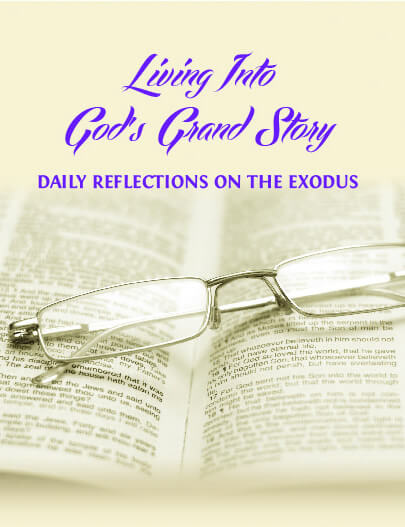
Exodus 13:3-9
Clearly God does not want the Exodus to be forgotten! It is the key to what God is up to throughout the Bible and throughout time. Theologians David Fleer and Dave Bland say of the Exodus story:
The Exodus is a fundamental paradigmatic narrative; so it declares and so it is treated throughout all of Scripture…What God does in the exodus is the archetype for how God acts throughout history and how God works today (Reclaiming the Imagination: The Exodus as Paradigmatic Narrative for Preaching).
In today’s text from the book of Exodus God commands that the Exodus story is to be passed down from generation to generation throughout time. God directs every succeeding generation to eat the Passover meal and declare: “It is because of what the LORD did for me when I came out of Egypt”. Passing on the Exodus story calls for each generation to personalize the Exodus and make it their own: “for with a strong hand the LORD brought you out of Egypt” (emphasis added). The Exodus story is to be appropriated and read as true for every generation as it tells the story of our bondage and God’s purpose to set us free.
According to the Mishnah (sayings of the rabbis around the time of Christ) “Every generation must regard himself as having been personally freed from Egypt” (Pesachim 10:5). This is based on God’s command in Exodus 13:8: “On that day you tell your children, ‘I do this because of what the LORD did for me when I came out of Egypt’”.
It does not mean that they were actually there physically, but that this is a story true for every generation. The Exodus is God’s grand story about the divine-human relationship. It is the story about God and us. So, we read the Exodus story not only as an historical event but also as a symbol, a metaphor, of our own spiritual journey. The outer journey of the Exodus corresponds to our inner journey. It is God’s ongoing story of redeeming His people.
From the time before Christ, the Passover meal has begun with the youngest person at the table asking: “Why is this night different from all other nights”. Then comes the ancient reply: “We were slaves to Pharaoh in Egypt”. The order for the Passover service says that, “each individual must regard himself as if he himself had escaped Egypt”. What God has done in the past is the basis for what He seeks to do now and in future generations.
When I brought your ancestors out of Egypt, you came to the sea; and the Egyptians pursued your ancestors with chariots and horsemen to the Red Sea. When they cried out to the Lord, he put darkness between you and the Egyptians, and made the sea come upon them and cover them; and your eyes saw what I did to Egypt.
Joshua 24:6-7 (emphasis added)
REFLECTION
- How might you reread the Exodus story as symbolic of your life story?
- What is the “story” you hope to tell future generations?



